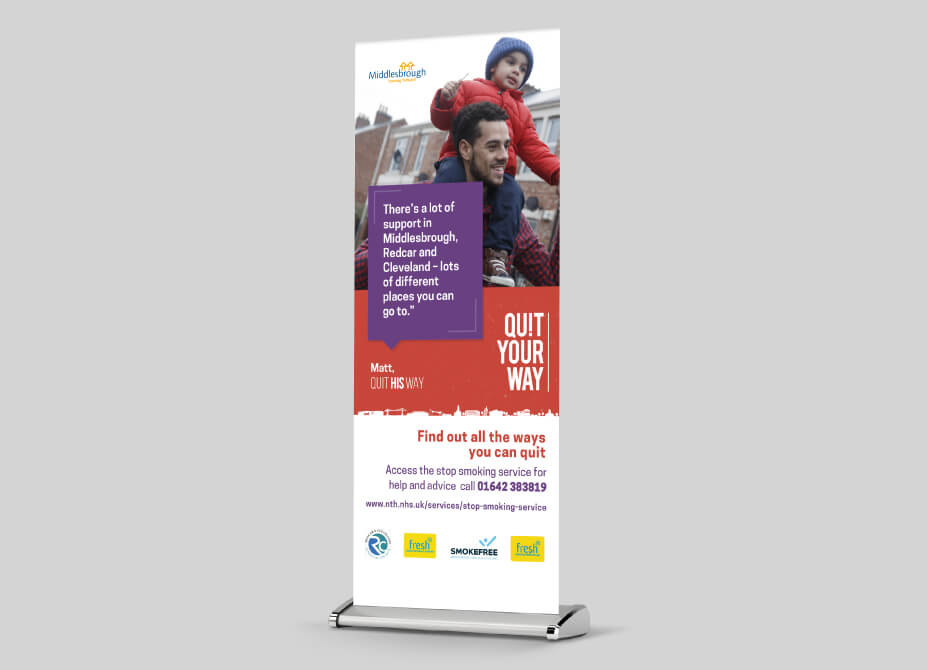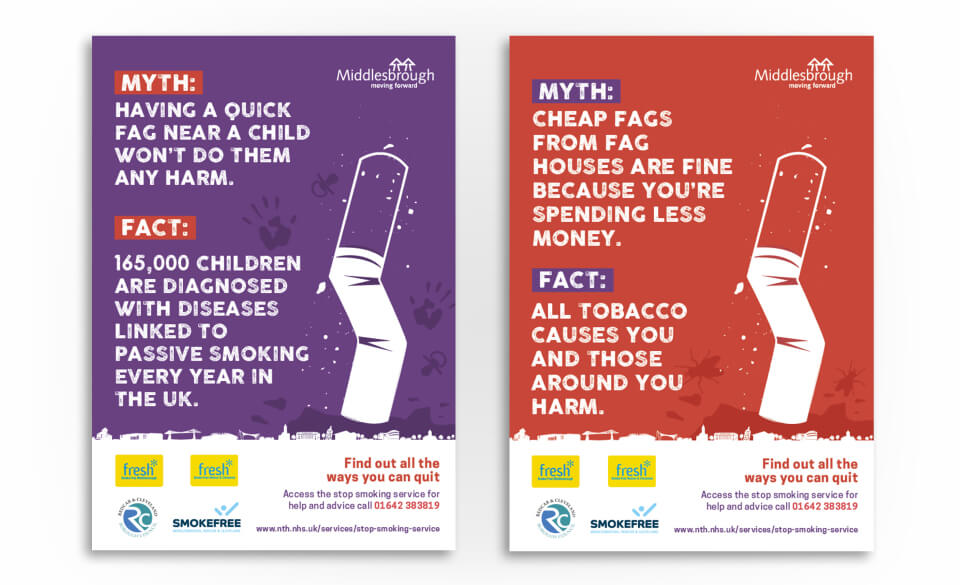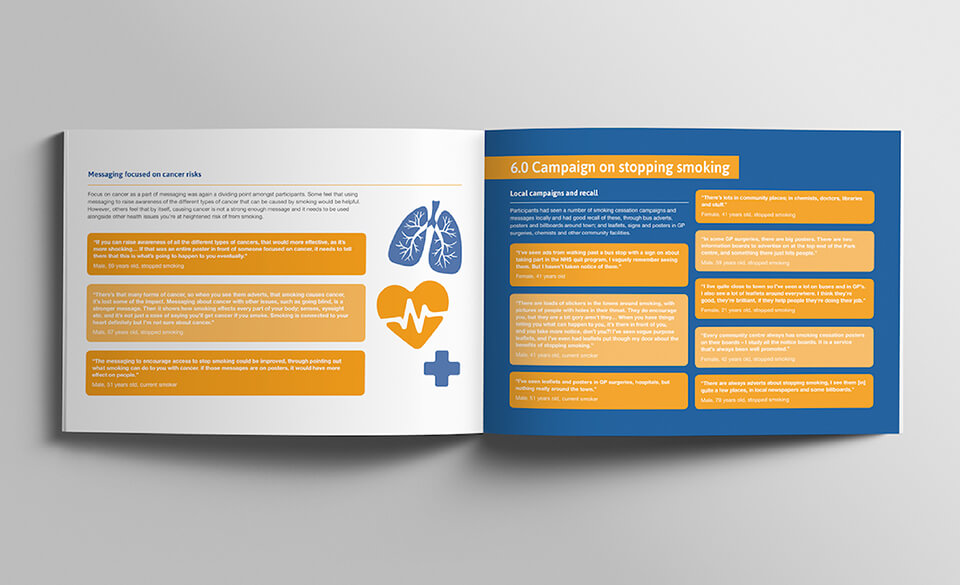Quit for Them
We were commissioned by Public Health Wales to develop a behaviour change campaign to decrease the number of young people taking up smoking.
More +We worked with Middlesbrough Council to uncover local insight into smoking attitudes and behaviours in order to develop a campaign to inspire smokers to quit for good.

Middlesbrough residents on a low income rarely take up the offer of NHS support to quit smoking. We were asked to undertake research with residents living in low-income communities and uncover local insight that will help healthcare professionals understand the barriers residents face when trying to quit. Following the research, our brief was to create a campaign that inspired smokers to consider quitting, or try again, with the support of stop smoking services.

We conducted qualitative research (telephone interviews and focus groups) in Middlesbrough with smokers to uncover information and insight around residents’ knowledge and awareness of smoking and local smoking cessation services and their experiences of trying to quit using the services in the past. We also explored smoking harms and consequences, second-hand smoke and their impact on people and pets, and their thoughts on smokefree areas and illicit tobacco.
The insights generated from the research were used to develop three campaign concepts to inspire resident smokers to access tailored support to help quit smoking, or try other support options available to them. Communications were developed to support a push to keep smoking harm front of mind and the campaign also focused on the impact of smoking on children after the research found that smokers cared more about the effects to others than to themselves. Middlesbrough Council used all three concepts as part of an awareness raising campaign to increase the number of residents from low income communities accessing local smoking cessation services.


We were commissioned by Public Health Wales to develop a behaviour change campaign to decrease the number of young people taking up smoking.
More +
A behaviour change campaign to inspire as many people as possible to give up smoking for good
More +For You & Baby is a campaign running in Derbyshire that aims to encourage families to quit smoking during pregnancy and consider breastfeeding after birth.
More +Enter your email address below to access the Academy and our Webinars